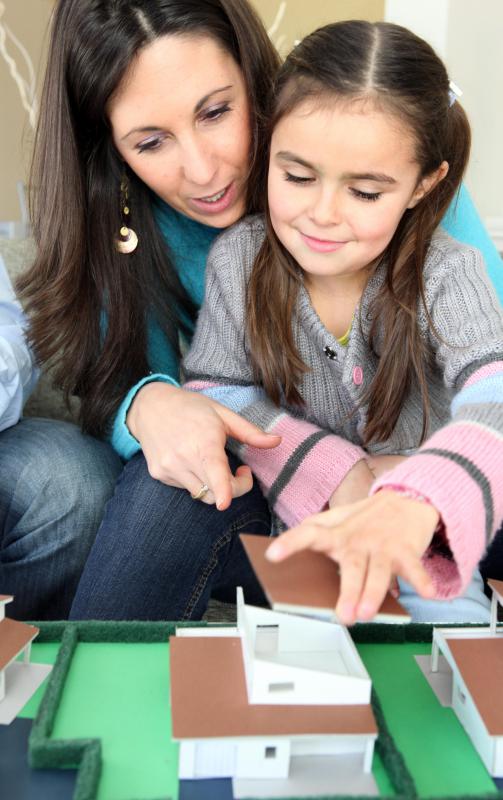At TheHealthBoard, we're committed to delivering accurate, trustworthy information. Our expert-authored content is rigorously fact-checked and sourced from credible authorities. Discover how we uphold the highest standards in providing you with reliable knowledge.
What Are Gross Motor Skills?
Functions involving large muscles in the body — such as running, sitting up, and jumping — are known as gross motor skills. These differ from fine motor skills, which involve small muscle functions, like grabbing objects and chewing. Motor abilities develop in accordance with physical and cognitive maturity. Children are often monitored to ensure their motor skills are progressing at a normal rate, and physical therapy or other treatment may be necessary if a delay is observed.
Infants first begin to strengthen large muscles by lifting their heads. This typically progresses to rolling over, crawling, and standing. Children whose gross motor skills are on track usually begin to walk between 12 and 15 months of age. Physical skills continue to develop throughout childhood, and most toddlers walk well, jump, and run at about two years of age. As children continue to grow, they are able to perform more advanced motor functions, such as balancing, biking, and throwing skillfully.

Parents, teachers and other caregivers should help develop and monitor childrens' gross motor skills, as delays can be difficult to rectify if they are not caught early. Infants should spend awake time lying on the tummy with supervision. Age appropriate toys placed near babies during play time encourage them to reach, roll, and crawl. As children begin to pull up and take steps, firm support objects and push walkers can help them cruise between supports and eventually walk independently.

Once a toddler is walking, caregivers can encourage gross motor skills development by providing access to play equipment, balls, and ride-on toys. Older children may benefit from tumbling or dance classes, sports leagues, and toys such as jump ropes and bean bag toss games. When participating in active play with children, adults should encourage them to jump, climb, and throw at a target, as when playing catch.

Some children experience delays in gross motor skills. This can be due to the child's unique development, but it may also indicate a medical concern, especially when other types of delays are present. Since development of motor skills are closely linked to cognitive development, parents should seek treatment when recommended by professionals. Pediatricians usually ask screening questions during well-baby and well-child visits. If the responses, combined with observation of the child, indicate a delay, the child may be referred to a physical therapist or other specialist.

Motor skills can usually be improved upon with physical therapy and training provided to parents and caregivers. In some cases, a child's large motor abilities may be impacted by an underlying medical condition, which must be addressed before therapy can be used to restore motor function. Parents and caregivers should discuss any concerns regarding a child's physical development with her pediatrician or family physician.
AS FEATURED ON:
AS FEATURED ON:

















Discuss this Article
Post your comments